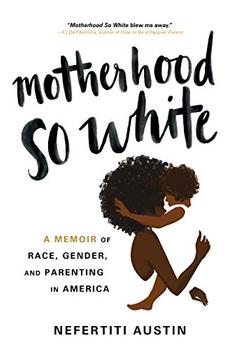Page 3 of 3
There are currently 17 member reviews
for Motherhood So White
-
Evelyn G. (Union, NJ)
Routine read
I read this book by Nefertiti Austin hoping to gain deeper insights into the challenges and difficulties in raising an adopted child by a single black woman. The book did not do that. It was readable enough and the author wrote truthfully about her background, I felt, but it was not an interesting read that spurred me on to learn or know more by turning the pages. Adopting a "crack baby" and raising the child to the best of one's ability is not unusual in the black community or even the while community as a whole these days. People in all circumstances raise to occasions as they present themselves. Ms. Austin does portray her love for her adopted child in her writing and that may be the prime redeeming quality I found in reading this book.
-
Vicky S (RPV, CA)
Mothers
I looked forward to receiving this book and reading Nerertiti's perspective on motherhood and adoption. Parts of the book kept me engaged as when she wrote about her parents and grandparents. Her descriptions had depth and I felt like I'd met her grandparents. I loved the section with the comments her male friends made about her raising her son. Hilarious.
Other parts I tried to read through quickly as I felt like I was being beaten over the head with a sentiment of otherness and her assumption that all white moms were the same. I've seen many moms with low income, or family turmoil or other challenges from a variety of backgrounds trying to do what was best with their children and having a hard time.
I respect that she chose to create this memoir partially as a result of not being able find something similar when she was considering adoption as a single Black woman.
-
Nancy L. (Staunton, VA)
Motherhood
As the adoptive mother of four, all now grown to adulthood, I thought I knew as much as there was to know about adoption. But I was wrong. Motherhood So White explores the black culture surrounding adoption, as well as the single parent adoption experience. Austin explores her own childhood and the many, many "informal" adoptions - Auntie or Grandma raising a child in need - found in black communities. The only off-putting note for me was the title itself. It just doesn't seem to fit with the content of the book. Austin explains the title a bit, but it does not sum up the many interesting and important things she has to say about black adoption.
